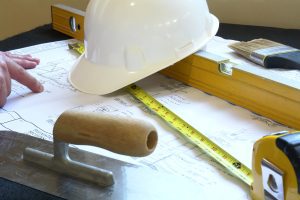Over the years, one consistent message we’ve shared with our automotive clients is that “Cash is King.” This is especially true when reviewing internal controls or assessing the operations of a dealership’s accounting department. Effective financial management starts with a clear and timely understanding of cash flow, which begins with accurately reconciling bank accounts.
What’s the point? Simply, a dealership’s cash balance impacts many significant balance sheet accounts that management relies on to make informed decisions. If the cash isn’t monitored correctly, a ripple effect can lead to errors in receivables, payables, inventory management, payroll management, and other key areas.
Keeping Up with Bank Reconciliations: A Constant Balancing Act
Even with modern accounting systems and countless reminders, it’s not uncommon to encounter dealerships that have fallen behind on bank reconciliations. The usual refrain we hear: “We’ll get to it when we have time, but there are other priorities right now.” Unfortunately, that time often never comes.
When a dealership lets reconciliations slide, the consequences compound. Trying to play catch-up means spending unnecessary hours reviewing months of bank statements and general ledger postings, correcting errors, and making adjustments. This process becomes far more cumbersome and frustrating than if reconciliations had been handled promptly from the start. In many cases, management will reach out to us for help at this point, but by then, significant time and resources have already been wasted.
The Domino Effect
When bank accounts aren’t reconciled, many other accounts are thrown off, leading to inaccurate information that can cloud management’s judgment. For example, receivables such as vehicle sales, contracts-in-transit, and parts and service revenues can all be misstated. Inaccurate “heat sheets” for receivables may also lead to delayed collections, further hurting cash flow. The misalignment doesn’t stop there—factory payables and other critical accounts can also be impacted.
What Should Management Do?
To avoid this snowball effect, management must stay proactive. Here are some key steps to keep cash a priority in your dealership’s accounting department:
- Timely Bank Reconciliations
Ensure that bank reconciliations are being completed, reviewed, and adjusted on a timely basis—ideally monthly. Every reconciling item should be clearly identified to avoid lingering issues. - Cross-Training in the Accounting Department
If your dealership experiences changes in personnel, particularly in the accounting department, make sure that others are cross-trained to step in and continue vital tasks like bank reconciliations. - Segregation of Duties
Fraud often occurs where cash is involved. To mitigate this risk, segregate duties so that the person preparing the bank reconciliations is independent of those handling other cash functions within the dealership. An independent review process should also be in place to catch any discrepancies early on. - Regular Reviews
Management should regularly review the reconciliations and be alert to any discrepancies. The sooner issues are detected, the less damage they can cause to your dealership’s bottom line.
Quick Recap: Steps to Keep Cash a Priority
- Reconcile bank accounts monthly, ensuring all reconciling items are clearly identified.
- Post reconciling items in a timely manner.
- Have an independent party review the reconciliations.
- Segregate duties to maintain strong internal controls over cash.
Remember: Cash is King. Keeping a close eye on your cash flow through timely reconciliations not only ensures accurate financials but also safeguards your dealership from fraud and costly errors. Make it a top priority today, and you’ll save yourself from headaches tomorrow.




